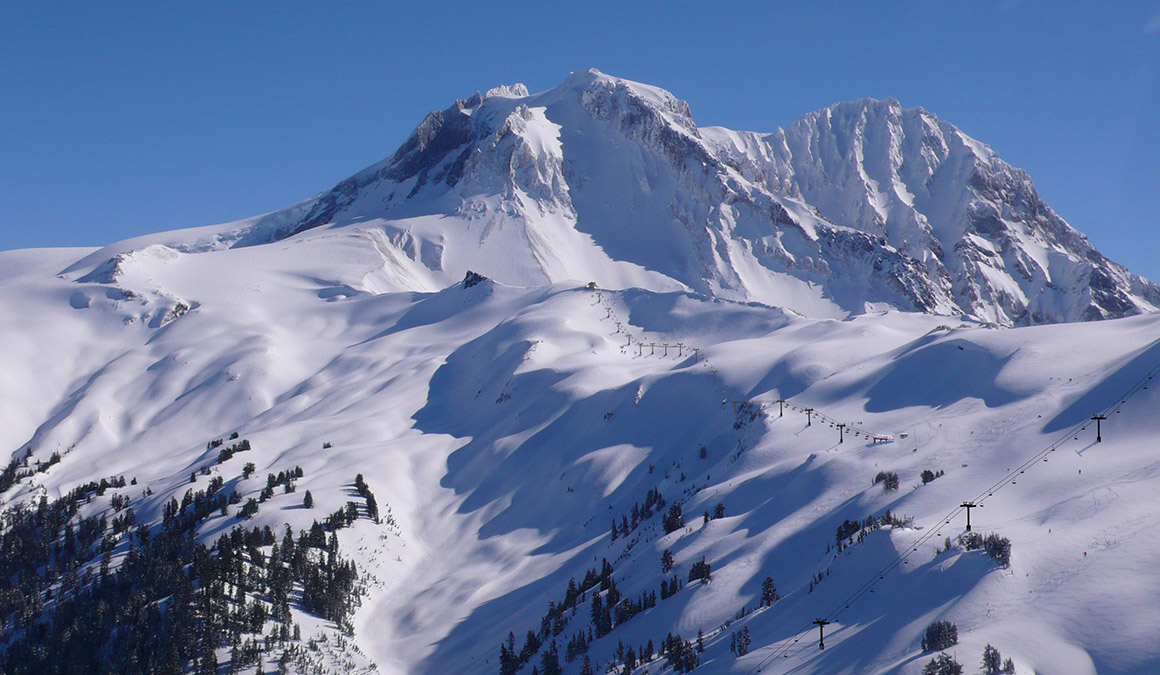
Plans to build a multi-billion-dollar ski resort on the west coast of Canada have moved one step closer to being approved.
Developers in British Columbia have proposed to build a new resort, currently known as Garibaldi at Squamish, on Brohm Ridge on Mount Garibaldi, just north of the town of Squamish. Total investment is expected to reach $3.5 billion (£2.67 million).
The plans are for an area just 45 minutes drive from North America’smost popular resort Whistler Blackcomb. Like many of British Columbia’s biggest resorts, Garibaldi would be located off the Sea-to-Sky highway, the main connecting road from Vancouver, an hour’s drive away from Squamish.
The original concept for the development of Garibaldi dates back to the mid-Nineties, however, according to the resort’s website, plans have now entered the master planning stage. By 2020 it is hoped the project will have the full support of the local government, after which it will be able to enter a final design stage before construction can begin in 2023, with a projected opening date of 2025.
In 2016 the plans received environmental approval from British Columbia’s provincial government and now developers are looking to gather feedback, via an online survey, from local people in Squamish and the surrounding area to help improve the design and build a resort.
“One main village is proposed, with hotels, restaurants and commercial spaces that will serve visitors and residents alike. Our priority is to ensure the needs of local families and businesses are considered during the design process,” said Rod MacLeod, vice president of planning at the resort.
Improvements have already been made to the ski area plans following feedback. Developers have added more steep, north-facing ski runs to mirror those popular in Whistler Blackcomb.
While most of the runs will be suitable for intermediate skiers and snowboarders, British Columbia’s provincial guidelines have helped shape the ski area to make sure there is a fair balance for all levels of skiers and snowboarders. The current plans suggest there will be 130 pistes and 21 lifts catering for a total capacity of 15,250 skiers or snowboarders at one time, plus multi-use trails for walking and mountain biking in the summer.
The main resort centre, or Village Portal, will sit at 1,130m at the foot of the slopes, 500m higher than Whistler Village at 670m. Access will be via a newly constructed road, connecting the resort to the Sea to Sky Highway.
Plans suggest the entire resort could span 2,508 hectares on Brohm Ridge, but developers say that 80 per cent of the land will either remain undisturbed or be turned into ski trails or recreational areas, to reduce the amount of disruption to the natural habitat. Four per cent of the area will be redeveloped for roads and infrastructure while 15 per cent will be used for housing and commercial space. By comparison, Whistler Blackcomb’s ski area, excluding the base villages and roads, spans 3,306 hectares.
The plans suggest that, once completed, the resort will have a visitor capacity of 17,538 and close to 22,000 beds.
The plans also state that 80 per cent or more of the accommodation in the resort will be ski-in/ski-out and the resort centre will be entirely car-free, similar to nearby Whistler Village – all in an effort to make the resort as sustainable as possible.
British Columbia is one of the most snow-sure areas of North America, with resorts like Whistler Blackcomb often boasting some of the snowiest conditions on the planet. According to a newsletter sent by the resort, twenty years of snow studies have shown that, in most years, Brohm Ridge gets more snow than Whistler Blackcomb at comparable elevations.
While the initial goal of developers is to build a compact yet sustainable resort in phase one, they hope to be able to develop it into an international destination in the long term. The resort hopes to provide jobs for local residents and the plans suggest that when construction is underway, the investors will pay over $850 million dollars in wages to local workers, hoping in turn this will benefit the economy and government.
The total projected $3.5 billion (£2.67 million) investment is coming from two key players, Aquilini Development and Northland Properties. Both are Canadian companies experienced in the hospitality, retail estate and construction and based in nearby Vancouver; both own NHL (North America’s National Ice Hockey League) teams, the Vancouver Canucks and the NHL Dallas Stars.